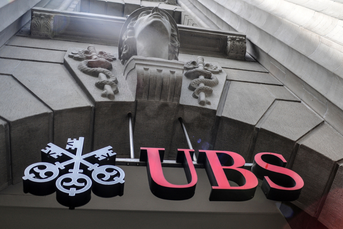West Virginia stops banking with Citi, Northern Trust, over fossil fuels

The state treasurer added four financial services firms to a list of those ineligible to provide banking services to the state because he says they 'boycott' the fossil fuels industry.
West Virginia’s treasurer announced that he is restricting four financial services firms from providing state banking services because he says they “boycott” the fossil fuels industry.
Citigroup Inc., TD Bank, Northern Trust Corp., and HSBC Holdings have been added to a list of companies that state treasurer Riley Moore’s office determined engage in such a boycott based on a review of each institution’s environmental, social and governance policies and public statements. The financial firms will now be ineligible to provide banking services to the state, Moore’s office said in a press release Monday.
“We cannot allow institutions that seek to destroy our state’s critical energy industries and the economic activity they generate to also profit from handling the very taxpayer dollars they seek to diminish,” Moore, a Republican, said in the statement.
As part of a 2022 GOP law, the state treasurer develops a list of financial institutions that have “publicly stated they will refuse, terminate or limit doing business with coal, oil or natural gas companies without a reasonable business purpose,” according to the statement. There are now nine financial services companies on the state’s list, including BlackRock Inc., Goldman Sachs Group Inc., JPMorgan Chase & Co., Morgan Stanley and Wells Fargo & Co.
[More: Texas bans Barclays from muni market over ESG dispute]
Joanne Zalatoris, a spokesperson for Northern Trust, said in a statement that the company does not boycott the industry. The company has $52 billion in investment exposure to companies in the traditional energy sector and companies with commercial activities relevant to fossil fuel production and supply, according to Northern Trust’s statement.
A spokesperson for Citigroup declined to comment. A report by groups including the Rainforest Action Network found that Citigroup was one of the largest financiers of fossil fuels globally between 2016 and 2022.
A spokesperson for HSBC said in a statement that the company seeks to work with energy companies, not boycott them. “Our policies anticipate that we will continue to provide corporate lending and capital markets transaction support to energy-based customers to both maintain supplies as well as support an orderly and just transition that helps with the creation of new jobs,” the statement said.
Representatives for TD Bank did not respond to a request for comment on Monday.
Moore is running for West Virginia’s 2nd congressional district in the House of Representatives. His campaign website says he has “stopped the woke corporate agenda.”
[More: Texas anti-ESG laws costing state more than $700M, study says]
Retirement savings gap persists despite bull market, Ascensus CEO says
Learn more about reprints and licensing for this article.








